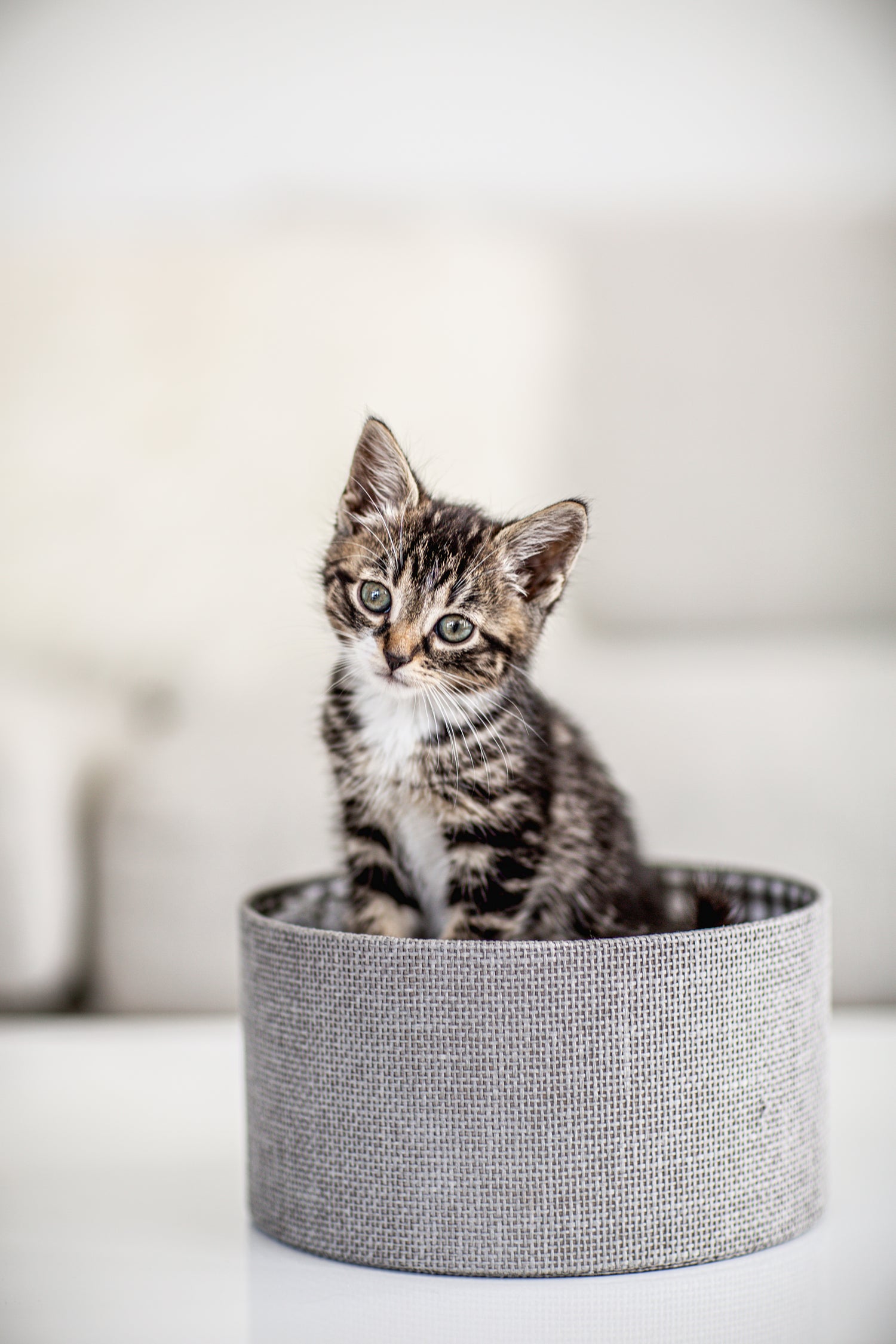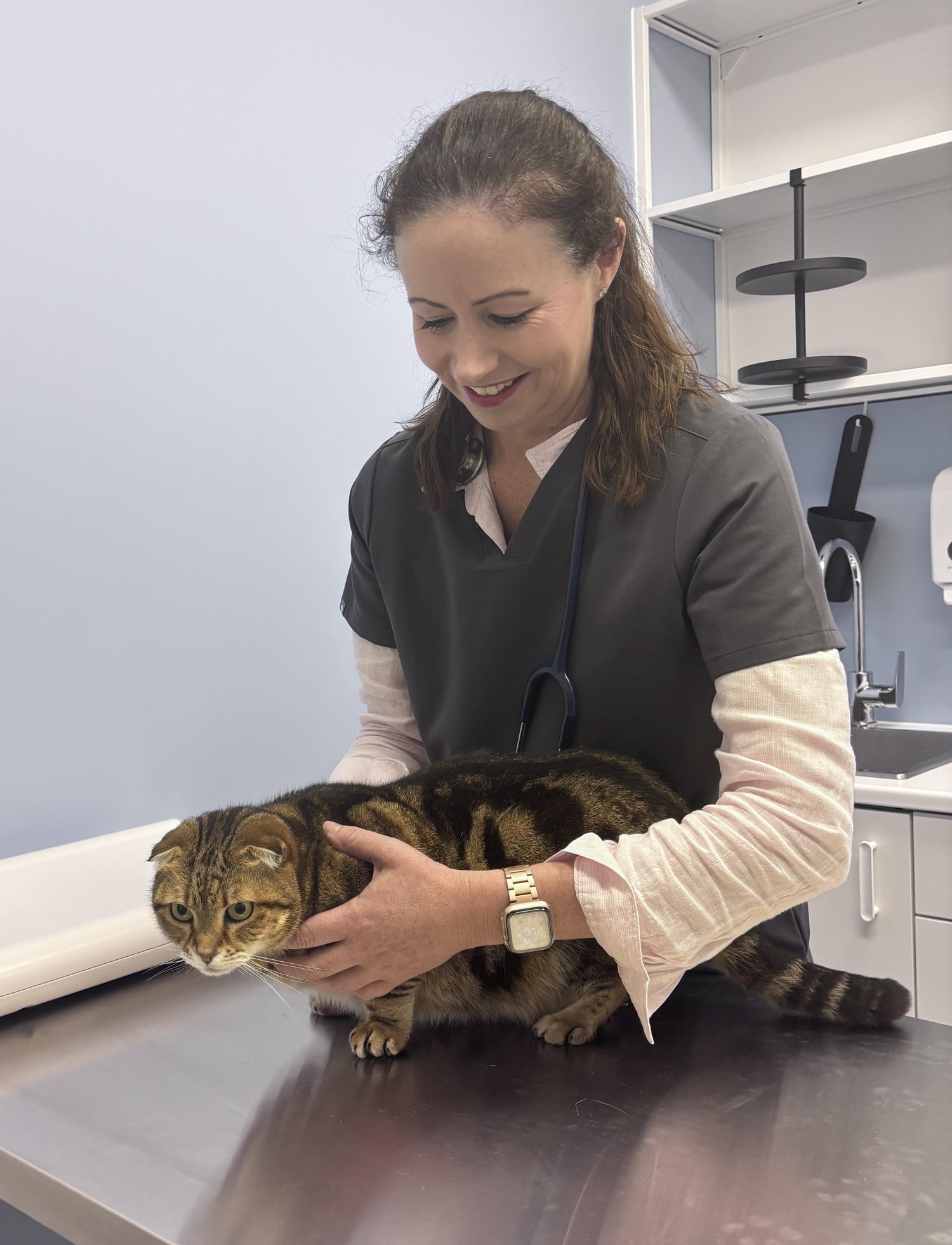Vaccinations - Cat
It is essential that all pets are adequately vaccinated to help protect our pet population as a whole – vaccination is vital in controlling the spread of infectious disease in our pet and maintaining optimal health. Responsible pet care requires kittens to be given their initial course of vaccinations, but this will not protect them for the rest of their lives. Adult cats also require regular vaccination to maintain immunity against disease.
Please give us a call to discuss a suitable vaccination program for your pet kitten or cat.
FIV VACCINES ARE BACK IN STOCK
After a nationwide shortage, the Feline Immunodeficiency Virus (FIV) vaccination is once again available at our clinic.
What is FIV?
FIV is a bloodborne virus that affects cats exclusively. It weakens the immune system, making infected cats more vulnerable to a range of secondary infections that can reduce their lifespan. Outdoor cats are at the highest risk, as the virus is commonly spread through bite wounds (saliva/blood), often during fights with infected cats.
The signs of FIV can be very non-specific and can include:
- Severe gingivitis or stomatitis (inflammation of the gums and/or mouth)
- Weight loss
- Poor appetite
- Fever, especially of unknown origin
- Chronic conjunctivitis (inflammation around the eyes)
- Swollen lymph nodes
- Vomiting and diarrhea
- It is important to note that there can be no signs present - an FIV-infected cat can appear to be completely health.
Once a cat is infected, there is no cure, only management of symptoms...that is why prevention is key!
How to Protect Your Cat:
- Vaccination: The FIV vaccine is the best defense for cats who go outdoors-it give up to 80% protection to cats.
- Keep them indoors: This greatly reduces the risk of exposure and infection.
If your cat is an outdoor explorer, overdue for their FIV vaccination, or has never been vaccinated, they will need a simple in-clinic blood test to confirm they are FIV-negative before beginning the vaccination protocol.
Our FIV vaccination protocol:
- Each cat will first require an FIV test to confirm they are negative.
- Once cleared, they will need a course of three vaccinations, given 2–4 weeks apart.
- After this initial course, your cat will only need a once-yearly booster to stay protected.
Special offer: The first 10 cats booked in will receive a FREE FIV test.
If you have any further questions please do not hesitate to reach out to us on (02) 8526 4185.

Kitten Vaccination
Kittens are usually temporarily protected against many diseases by antibodies received through their mother’s milk. These maternal antibodies decline in the first couple of months of their lives, after which vaccinations are required to maintain immunity against disease. A series of vaccinations are necessary for a kitten to adequately stimulate the immune system. Kitten vaccination programs should provide at least two, but ideally three vaccinations 3-4 weeks apart. There are a number of different protocols available, and the most appropriate for your kitten or cat will depend upon a number of factors including their lifestyle.

Adult Cat Vaccination
The immunity from kitten vaccination weakens over time and your pet can again become susceptible to disease. Annual health assessments and booster vaccinations will provide the required protection for the life of your pet.
We recommend your adult cat have at a minimum the core F3 vaccination annually
Protocol
The following is a general protocol which, as stated, will depend upon your individual cat’s needs.
| Age | Core Vaccination Neccessary | Optional Vaccinations depending on lifestyle | ||
|---|---|---|---|---|
| 6-8 weeks | F3 vaccination (feline panleukopenia virus,feline calicivirus and feline herpes virus) |
FIV (Feline Immunodeficiency virus) |
FeLV (Feline leukaemia virus) |
Chlamydia felis |
| 10-12 weeks | F3 vaccination | FIV | ||
| 14-16 weeks | F3 vaccination | FIV | ||
| Annually | F3 vaccination | FIV | ||
Care after vaccination
Following vaccination some cats may be a little off-colour for a day or two where their appetite and/or energy levels may not be as they normally are, or they may have a slight swelling or tenderness at the injection site. Access to food and water and a comfortable, warm area to rest are usually all that is required for a quick recovery. If the response seems more severe or persists for longer than 2 days, please contact us for advice.
What are the conditions against which we vaccinate our cats?
Feline Panleukopenia (also known as Feline Enteritis or Feline Parvovirus)
This is a very contagious disease, and the death rate is high, especially for young cats under 12 months of age. Pregnant cats infected with this virus may lose their young or give birth to kittens with abnormalities such as brain damage. Symptoms of feline panleukopenia are depression, loss of appetite, uncontrollable vomiting and diarrhoea, often containing blood and severe abdominal pain.
The virus is so contagious and lasts in the environment, thus spreading so easily that contaminated areas need to be cleaned with a special disinfectant.
Feline Herpesvirus and Feline Calicivirus (also known as Feline Respiratory Diseases or Cat Flu viruses)
90% of Cat Flu cases are caused by Feline Herpesvirus (also known as feline rhinotracheitis) and/or Feline Calicivirus.
These viruses affects cats of all ages, especially young kittens. They are highly contagious and can cause sneezing, coughing, runny eyes, nasal discharge, loss of appetite and tongue ulcers.
Fortunately, the death rate is low in adults, however it is often fatal in young kittens, in which respiratory disease is distressing and clinical signs may persist for several weeks. Recovered cats can continue to carry and spread the infection for long periods of time, and can show signs of the disease again if they become stressed.
Feline Immunodeficiency Virus (FIV)
Feline immunodeficiency virus (FIV) attacks a cat’s immune system, similarly to HIV in humans. Infected cats’ natural defence against other diseases or infections may be seriously affected, much in the same way as human AIDS. It is important to note that FIV is not transmissible to humans.
FIV is generally transmitted by bites from infected cats, since the virus that causes the disease is present in saliva. This virus is therefore often seen in outdoor cats who have the propensity to fight with other cats.
While some infected cats show no sign of disease, others may display initial symptoms such as fever, loss of appetite, diarrhoea, lethargy and swollen lymph nodes.
As the disease progresses, symptoms may occur such as weight loss, sores in and around the mouth, eye lesions, poor coat and other chronic infections. Eventually, the immune system may become too weak to fight off other infections and diseases and as a result, the cat may die from one of these subsequent infections.
Unfortunately in Australia, FIV is very common, with 1 in 7 cats with outdoor access being infected with this virus, although statistics can vary depending on location.
Feline Leukaemia Virus (FeLV)
The FeLV virus attacks the immune system and may be associated with lack of appetite, weight loss and lethargy, pale or yellow gums, vomiting, diarrhoea, reproductive problems, increased susceptibility to other infections, leukaemia and tumours. Many cats may be infected and show no signs at all.
About one third of infected cats remain chronically infected and may shed virus in their saliva, tears, nasal secretions and urine. The disease is then spread to uninfected cats through close contact such as shared food/water bowls and mutual grooming), fighting, sneezing or even flea bites.
Chlamydia felis
Chlamydia felis is a bacterial disease which is responsible for up to 30% of conjunctivitis in cats. It can causes severe and persistent signs.
Kittens are more commonly affected by Chlamydia felis when also infected with “Cat Flu”, and Chlamydia felis can be shed for many months. Vaccination against Cat Flu and Chlamydia felis can help to protect against clinical disease.
